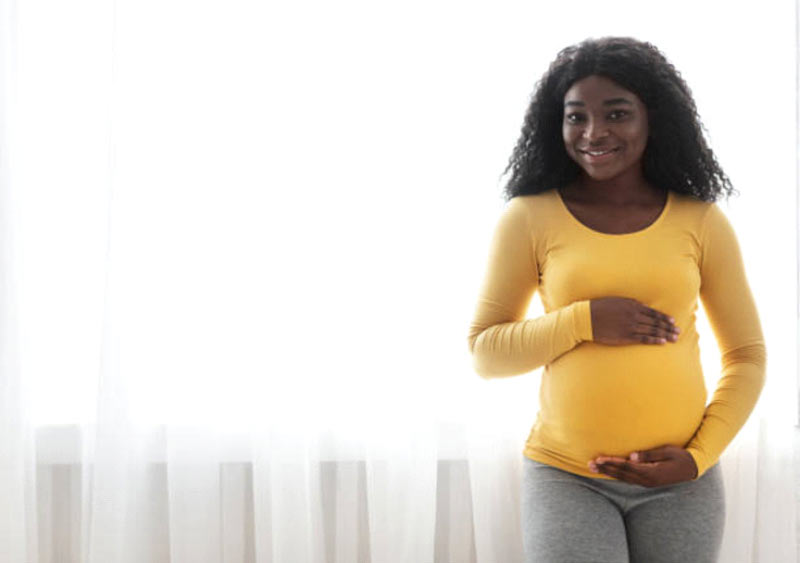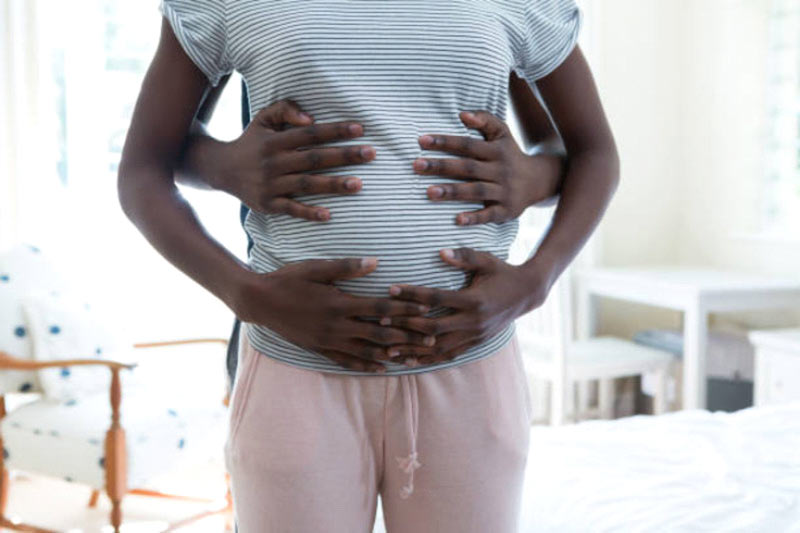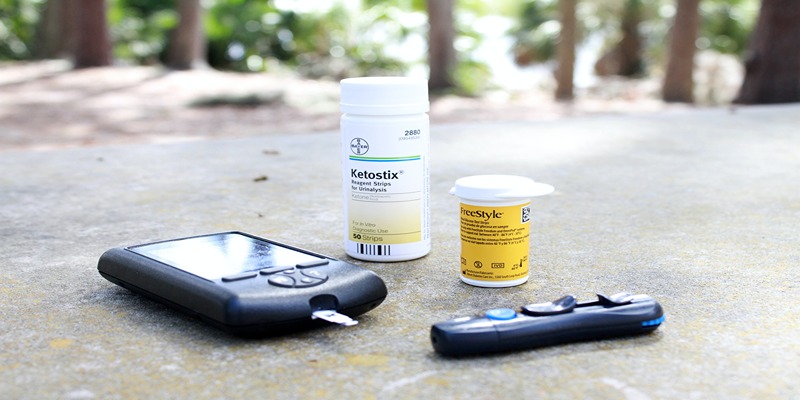Exploring the Prevalence of Uterine Fibroids in Black Women: A Closer Look
Jan 16, 2024 By Marie White
As a Black woman, it's important to be aware of the prevalence of uterine fibroids in our community. Uterine fibroids are non-cancerous tumors located on or within the muscle layers of the uterus that can cause severe pain and other symptoms, with African American women more likely than any other ethnic group to develop them. Understanding the prevalence, risks, diagnosis, treatment options, and prevention is essential for maintaining overall health and wellbeing. In this blog post we’ll take a closer look at all these issues related to uterine fibroids in Black women – exploring why they're common as well as potential solutions.
Overview of Uterine Fibroids and their Prevalence in Black Women:

Uterine fibroids are benign (non-cancerous) tumors that form in the uterus and can range in size from very small to large. They often don't cause symptoms, but for many women they can cause heavy menstrual bleeding, painful periods, pelvic pain or pressure, difficulty emptying the bladder, pain during sex, and infertility.
African American women are two to three times more likely than Caucasian women to develop uterine fibroids. They also tend to have larger fibroid tumors and experience more severe symptoms, including longer menstrual cycles and more painful periods.
Risk Factors for Uterine Fibroids in Black Women:
There is no single cause of uterine fibroids, but there are several factors that may increase a woman's risk.
These include age (women over the age of 40 tend to be at higher risk), obesity (being overweight or obese increases the likelihood of developing fibroids), and family history (having a close relative with fibroids increases your chances).
Other environmental factors like hormones and lifestyle choices, such as diet, physical activity, alcohol consumption, and smoking may also contribute to a woman's risk.
Diagnosing Uterine Fibroids in Black Women:
If you have any of the symptoms associated with uterine fibroids, it's important to speak to your doctor right away. Your doctor will likely perform a pelvic exam and possibly an ultrasound or MRI to diagnose the fibroids.
If you're pregnant, your doctor may also order a blood test to check for any signs of infection. Knowing the size and location of the fibroids is key for determining the best course of treatment.
Treatment Options for Uterine Fibroids in Black Women:
When it comes to treating uterine fibroids, there are several options.
Non-surgical treatments such as medications and hormone therapy can help manage the symptoms of uterine fibroids, while surgical treatments like myomectomy (the removal of just the fibroid tumors) or hysterectomy (the removal of the uterus) offer a more permanent solution.
It's important to discuss all treatment options with your doctor to determine what's best for you.
Prevention and Self-Care Tips for Uterine Fibroids in Black Women:

While there is no sure way to prevent uterine fibroids, there are steps you can take to reduce your risk.
Maintaining a healthy weight (eating nutritious foods and getting regular physical activity) can help lower your chances of developing fibroids. Avoiding alcohol and smoking can also reduce the risk.
self-care is key to managing any existing symptoms of uterine fibroids. Regular exercise, relaxation techniques like yoga or meditation, hot baths, and over-the-counter painkillers can all help ease discomfort. And don't forget to get regular checkups with your doctor to make sure your fibroids are still under control.
Preventing Uterine Fibroids in Black Women:
While it may not be possible to completely prevent uterine fibroids, making healthy lifestyle choices like maintaining a healthy weight, exercising regularly, and eating a balanced diet with plenty of fruits, vegetables, and whole grains can help reduce your risk.
In addition, taking steps to manage stress levels and avoiding smoking or drinking alcohol can also be beneficial for reducing the risk of developing fibroids.
Types of Uterine Fibroids and Associated Symptoms:
The types of uterine fibroids can vary greatly in size and location, with some being as small as a seed or pea while others may be large enough to fill the entire uterus.
The symptoms associated with each type of fibroid depend on its size and location, but generally speaking they include pelvic pain or pressure, heavy menstrual bleeding, difficulty emptying the bladder, pain during sex, and infertility.
Possible Complications of Untreated Uterine Fibroids:
It's important to understand that untreated uterine fibroids can lead to serious complications. These include anemia due to excessive menstrual bleeding, pelvic pain or pressure, difficulty emptying the bladder, and in some cases even infertility.
In severe cases, fibroids may require more invasive treatments such as surgery or hysterectomy to treat.
It's important to speak to your doctor right away if you experience any of the symptoms associated with uterine fibroids so they can determine the best treatment plan for you.
Conclusion:
Uterine fibroids are common in Black women and can cause serious complications if left untreated. Understanding the risk factors, symptoms, and treatment options is key for maintaining overall health and wellbeing.
If you have any of the symptoms associated with uterine fibroids or just want to learn more about them, it's important to speak to your doctor. They can help you find the best solution for managing your symptoms and preventing further complications.
FAQs:
Q: What are the symptoms of uterine fibroids?
A: Common symptoms of uterine fibroids include heavy menstrual bleeding, pelvic pain or pressure, difficulty emptying the bladder, and pain during sex.
Q: Is it possible to prevent uterine fibroids?
A: While it may not be possible to completely prevent uterine fibroids, making healthy lifestyle choices like maintaining a healthy weight, exercising regularly, and eating a balanced diet can help reduce your risk. Avoiding alcohol and smoking can also reduce the risk.
Q: What are some treatment options for uterine fibroids?
A: Non-surgical treatments such as medications and hormone therapy can help manage the symptoms of uterine fibroids, while surgical treatments like myomectomy (the removal of just the fibroid tumors) or hysterectomy (the removal of the uterus) offer a more permanent solution. It's important to discuss all treatment options with your doctor to determine what's best for you.
-
 Prevention Nov 09, 2024
Prevention Nov 09, 2024Using Blue Light Before Bed: How Bad Is It for Your Sleep?
LED blue light before bed might affect melatonin synthesis, making sleep difficult. It also causes screen addiction and poor sleep.
-
 Prevention Aug 26, 2024
Prevention Aug 26, 2024Is Goat Cheese a Healthy Choice? Benefits and Possible Risks
Goat cheddar cheese is the perfect alternative for people allergic to regular cheese. It is higher in all essential nutrients required by the body.
-
 Condition Feb 23, 2024
Condition Feb 23, 2024Folic Acid's Role in Lowering Stroke Risk in Hypertension Patients
Essential B vitamin folic acid decreases stroke risk in high-blood-pressure patients. Folic acid supplement users had a 20% decreased stroke risk, studies showed.
-
 Condition Nov 17, 2023
Condition Nov 17, 2023Reversing Diabetes Naturally: Effective Strategies and Treatments
Explore natural methods and medical treatments to reverse diabetes, aiming for a healthier, balanced lifestyle.
